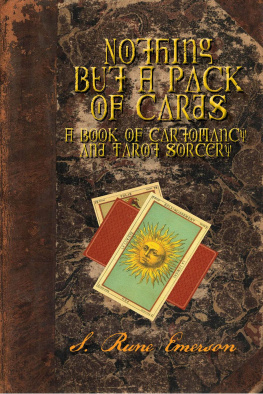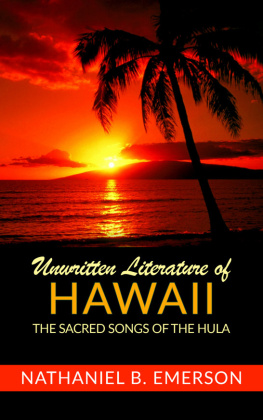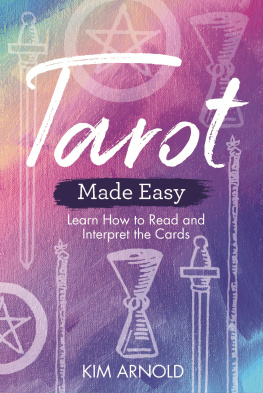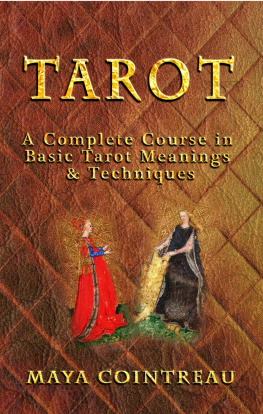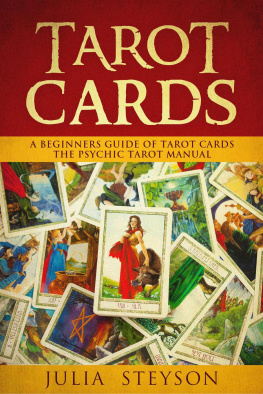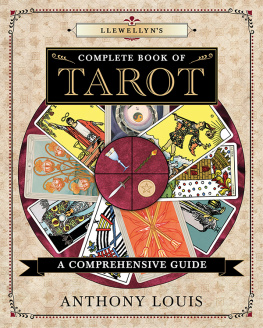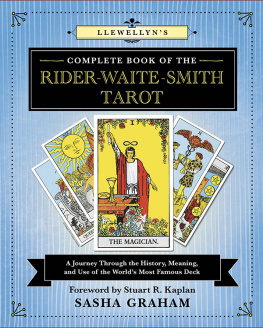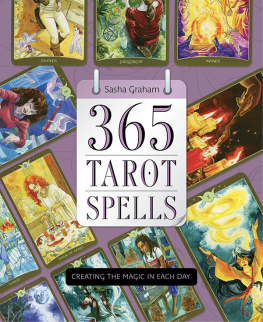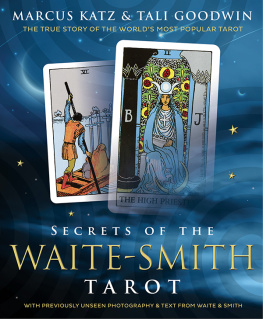Also by S. Rune Emerson
Nothing But a Pack of Cards A Book of Cartomancy and Tarot Sorcery
Nothing But a Pack of Cards
A Book of Cartomancy And Tarot Sorcery
S. Rune Emerson

N othing But a Pack of Cards: A Book of Tarot Sorcery and Cartomancy
by S. Rune Emerson
2016 First edition
All rights reserved, including the right to reproduce this book, or portions thereof, in any form.
The right of S. Rune Emerson to be identified as the author of this work has been asserted by him in accordance with the Copyright, Designs and Patents Act, 1988.
A Megalithica Books edition
An imprint of Immanion Press
info@immanion-press.com
http://www.immanion-press.com
Acknowledgements
To my mother, Misty Yeoman-Jones,
and to my sister, Lee-a Frasch,
who always knew Id write a book:
thank you for believing in me,
and for teaching me what magic really was.
To my family:
Gregory Robertson
Michael Campbell
Nate Viner
Jeanne Trend
Without you guys, this book
would never have been begun,
let alone finished.
To all my friends in the community,
who kept insisting I write a book on this subject
thanks for inspiring me.
Table of Contents
W riting this book has been a complicated experience. The art of magical images and talisman-crafting has been a longstanding interest of mine, dwarfed only by my interest in the arts of divination and magical information gathering. Thus, the book you hold in your hands now has been something of a dream (and not always a pleasant one) to write.
The subject of magic as a practice, especially in this modern age, can be tricky to write about. One of my favorite quotes about this comes from a modern television show, Once Upon a Time. The character Jefferson states You know what the issue is with this world? Everyone wants a magical solution to their problem, and everyone refuses to believe in magic. [1] I think thats true - people who study magic often want to conflate it with the common philosophies of modern science or ancient religion, both of which offer up solutions to problems as if everything were easily explained in small bite-sized platitudes or theories.
Nowadays, science and religion do the same job. No matter what the interest is starting out, the finished product is designed to make people feel safe and secure, to help engender trust and faith. This can be dangerous, as it makes faith into something uniform instead of something personal. Concepts formerly offered as hope for a personal conflict become universal blanket statements of fact, despite the priests and scientists all being perfectly aware that we do not know the smallest bit about the universe.
Magic, on the other hand, is always personal. It says to us, your wishes have strength, but they also have cost. It offers us a chance to achieve our greatest desire, if we are willing to pay the price - whether it be a personal sacrifice or loss, or simply a whole lot of time and practice, we wont know until we step off the cliff or walk away from it. And the price changes from person to person - it is never the same.
Magic reminds us that nothing is impossible, that there are no safeties or sureties or guarantees, and it removes the blindfold from our eyes. We are fools, and we dance on the cliffs edge every day. The world is not only dangerous, its wondrous and full of experiences we never dreamed of. Reality eclipses our imaginations ability to conceive its outer limits.
And yet, somehow, our imagination and will have the ability to affect this vast mysterious universe and change it. I think thats probably the most miraculous part of it all - that it is so huge and mind-boggling, and yet such a small thing as a spell has the capacity to change its entire layout.
I suppose thats why I love tarot cards so much. A game designed sometime between the 11th and the 15th centuries, played as a trick-taking game, the alleged devils picture-book was designed as an artistic metaphor for life; literally, it was a game about life. The occult aspects of the tarot are something of an amazing joke. Imagine if we took the board game known as the Game of Life and turned it into a system of magic and divination. Thats exactly what happened, and I surmise it happened in no small part because of the reaction people had to that famous Dominican sermon, which castigated the game of triumphs as the devils tool. [2]
The cards make the whole world into a game, reducing every person, place, object, or event into a two-dimensional pasteboard which (astonishingly enough) actually deepens those subjects and makes them more meaningful. Rather than diminishing the importance of life, it expands it in our minds, allowing us to see connections we never noticed before. I find that remarkable, to say the least.
This makes the tarot something unique as a magical tool. Nearly anything we can think of can be used for mystical purposes. From ordinary houseplants to a mothers advice, from clothing to toys, everything possesses a virtue and a mystery - and the word occult literally means hidden or mysterious. However, theres a long stretch of difference between something which is useful for a spell or two, to a single object which can not only assist you in any spell, but can actually teach you any kind of magic a person might ever care to know.
When I was a child, I always wanted to find one of those ancient grimoires I always saw in television shows and read about in novels. You know the ones. Whether they were a checked-out library book or a huge leather-bound tome, they had everything in them. Spells, potions, rituals, lore - anything and everything was in those books. And we knew they were special, because the books often were depicted as being strangely magical, protected by spells or even maybe alive and aware.
I wanted a book like that, badly - probably more than anything else in the world, really.
Years later, someone told me that a tarot deck was an ancient book of spells and magical initiation, that it came out of Egypt and had mystical encoded knowledge in it. While I now know that history to be a fabrication, I cant help but be grateful for having heard it. It sparked something in my mind, and it let me look at the cards in a brand-new way. And, to be fair - while it may not have been true in the eighteenth century (when Antoine Court de Geblin [3] published his spurious analysis of the so-called Book of Thoth), it can be said that it is true enough now - many tarot artists design their cards with the intent to teach mystical traditions and concepts through the images they create.
Later in life, I stumbled across some of the grimoires written by ancient medieval magicians - books like the Key of Solomon or the Picatrix, and was (perhaps unsurprisingly) disappointed. Small and dry, brittle in both page and concept, they werent what I was hoping to find. I wanted a book that made the world alive and taught me new and amazing spells, something that was always relevant.
The Tarot is all of these things, and it is my hope that this book will help you, the reader, learn to work with your cards in the same manner as I have, and maybe come to love the cards as I do.
Within these pages, you will find spells and remedies, to be sure, but also the basics of sorcery in general, and the practice of card-based magic. As magic is personal and often subjective in pursuit (though objective in manifestation), I must make this disclaimer: your mileage may vary from charm to charm, from exercise to exercise. Learning magic requires one to trust ones journey and ones guide, and so I must operate under the idea that my readers trust me enough to make proper use of this book.

